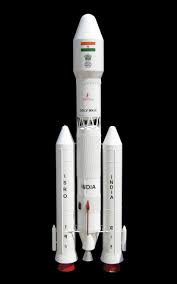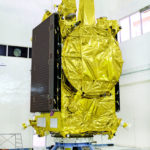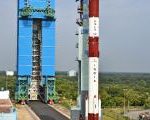ISRO – Indian Space Research Organisation
ISRO has made every Indian proud once again. This time ISRO created a world record on 15 February 2017, by successfully blasting 104 satellites into their orbits in a single launch.
What is ISRO?
ISRO is the space agency of the Republic of India. ISRO stands for Indian Space Research Organisation. The history of ISRO is interlinked to the history of independent India. Jawahrlal Nehru, a great visionary and the first Prime Minister of India established Indian National Committee for Space Research (INCOSPAR) in 1962. ISRO, established on 15 August 1969, superseded INCOSPAR. It also resulted in institutionalizing the space activities in the country. Vikram Sarabhai, a well-known scientist and close aid of the prime minister played a pivotal role in the formation and initial years of establishment. He is regarded as the father of Indian Space Programme.
In recent years, the economic progress of the India made the country more self-reliant in space programme activities. The space programme is more visible and active now. Indigenous rockets have placed many satellites of other countries in their orbits in an unbeatable cost effective manner.
The organization has its headquarters in Bengaluru. ISRO is managed by the Department of Space that reports directly to the Prime Minister of the country.
What are the major achievements of ISRO?
The major achievements of ISRO include:
• Built Aryabhata, the first satellite of India. It was launched on 19 April 1975 by Soviet Union.
• Indian-made launch vehicle, SLV-3, placed the satellite Rohini in its orbit in 1980.
• Developed the Polar Satellite Launch Vehicle (PSLV) to launch satellites into polar orbits.
• Developed the Geosynchronous Satellite Launch Vehicle (GSLV) to launch satellites into geostationary orbits.
• Developed satellite navigation systems GAGAN and IRNSS.
• Developed indigenous cryogenic engine.
• Launched Chandrayaan-1, lunar orbiter on 22 October 2008.
• Launched Mars orbiter as part of Mars Orbiter Mission that entered the obit of Mars on 24 September 2014. India became the first nation to succeed in such a mission on first attempt. ISRO became the fourth space agency in the world to claim the honor.
• Created a world record on 15 February 2017 by launching the maximum number of satellites (104) in a single rocket (PSLV-C37)
What are the future plans of ISRO?
ISRO aims achievement of following in coming years:
• Development of GSLV MK III for launch of heavier and bigger satellites
• Become a reliable and cost effective space agency for other countries for launch of their satellites
• Development of reusable launch vehicle
• Human spaceflight
• Advanced lunar exploration
• Research and Development in space science and more interplanetary probes
• Solar exploration and spacecraft mission.
• Space based applications for social development
• Strengthening Indian National Satellite(INSAT) programme and Indian Remote Sensing Satellite (IRS) programme.
The vision of ISRO states: “Harness space technology for national development, while pursuing space science research and planetary exploration.” . The recent progresses and developments prove that the organization is in the right track. It has become one of the highly successful space agencies in the world. ISRO has achieved success at a highly cost effective manner that even developed countries are finding difficult to match. Why is Planet Labs Inc, US-based earth imaging startup in news?
Escape velocity and satellites.
Why cannot airplanes take us to space?









